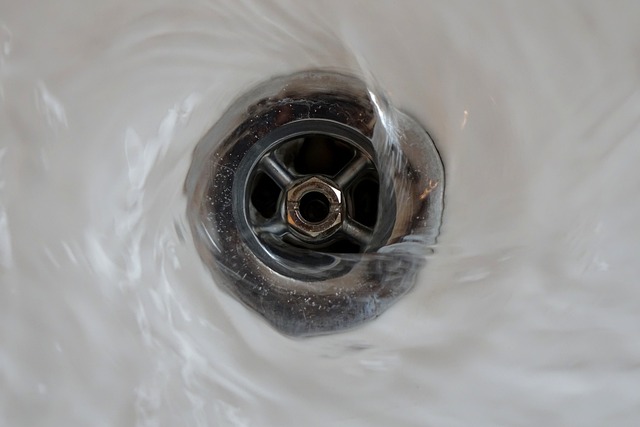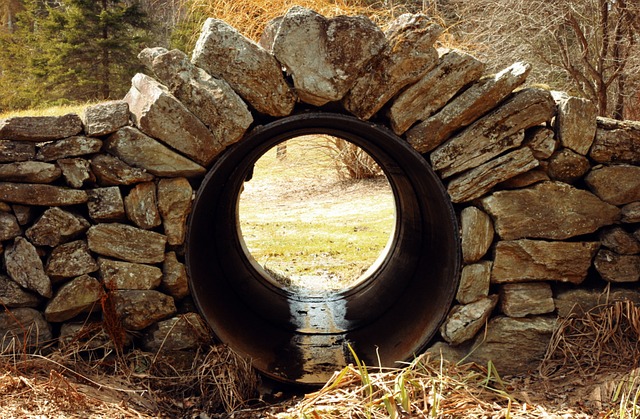Homeowners often overlook early signs of drain clogs, like slower drainage, as minor inconveniences. However, these issues can escalate to bad odors, water damage, and pipeline bursts. Recognizing culprits like grease buildup, hair tangles, and soap scum is crucial for preventing severe blockages and maintaining smooth plumbing. Detecting sudden changes in plumbing aroma, indicative of more serious clogs, requires immediate action. Regular maintenance and cleaning are key preventive measures to avoid these "Signs of a Clogged Drain."
Are you tired of those frustrating moments when your sink or shower drain starts to slow down, or worse, emits unpleasant odors? Understanding the subtle signs of a clogged drain can save you from major plumbing disasters. This article guides you through the process of identifying common causes and early warning signals, from slow drains to relentless bad smells. By recognizing these signs, you’ll learn how to take proactive measures before a clog becomes a nightmare.
- Recognizing Slow Drains: The First Sign of Trouble
- Unmasking the Culprits: Common Causes of Drain Clogs
- A Whiff of Trouble: Identifying and Addressing Bad Smells
Recognizing Slow Drains: The First Sign of Trouble

Many homeowners often overlook the early warning signs of a clogged drain, assuming it’s a minor inconvenience. However, what starts as a slow drain can lead to more severe issues like bad odors, water damage, and even pipeline bursts if left unattended. The first visible sign of trouble is usually a noticeable slowdown in drainage. Whether it’s your kitchen sink, bathroom, or shower, if water takes an unusually long time to clear after flushing or filling, it could be a red flag indicating a clog.
This initial lag in drainage often goes unnoticed because we frequently attribute it to various factors like hair, grease, or common household debris. However, as the buildup intensifies over time, these slow drains can transform into more serious signs of a clogged drain, prompting the need for prompt action to prevent potential disasters.
Unmasking the Culprits: Common Causes of Drain Clogs

Unmasking the Culprits: Common Causes of Drain Clogs
Many homeowners often wonder, “What are the signs of a clogged drain?” The answer lies in understanding the common culprits behind these pesky issues. Typically, drain clogs result from a buildup of grease, hair, and other debris that accumulate over time. Daily activities like washing dishes, bathing, or even improper disposal of waste can contribute to these blockages.
Grease from cooking, personal care products, and household chemicals are frequent offenders. Hair, especially from showers and sinks, can form tangles and clump with soap scum, creating a substantial blockage. Moreover, foreign objects like toys, sanitary products, or even small appliances accidentally flushed down the drain can cause severe clogs. Recognizing these common causes is the first step in preventing potential disasters.
A Whiff of Trouble: Identifying and Addressing Bad Smells

A Whiff of Trouble: Identifying and Addressing Bad Smells
One of the first signs of a clogged drain is an unpleasant odor. Your sink, shower, or toilet might start emitting a putrid smell, indicating that something is amiss. This isn’t just an inconvenience; it could signal a more serious blockage that, left unchecked, can lead to bigger problems like flooding and water damage. Pay attention to sudden changes in the aroma of your plumbing, as they often serve as early warning signs.
If you detect foul scents coming from your drains, take action immediately. The source could be organic debris, grease buildup, or even something more sinister like sewer gas. Simple troubleshooting methods include using a plunger or drain snake to clear obstructions. Regular maintenance and cleaning of drains can prevent many odors from occurring in the first place.
Understanding the early warning signs, like slow drains or unpleasant odors, is key to preventing severe clogging disasters. By identifying common culprits and taking proactive measures, you can keep your drains flowing smoothly. Regular maintenance and quick action when noticing any signs of a clogged drain will save you time, money, and potential damage.
